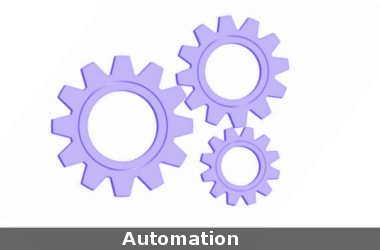
Automation will not kill jobs but change them!
Automation is controversy’s favourite child in the world of technology. It generates mixed response every time it tries to upgrade itself to something more productive, more accurate, more competent, and of course, more automated. Robots will take over human race and what not! These are the favourite terms designed to scare people from evolving and adapting to the changes that comes along.
One of the biggest fears of automation comes from the myth (or the fact, perhaps) that it will kill jobs just as it has been ever since its introduction. More people will lose jobs to machines is what has gotten people to protest each time a new automated door or vending machine gets installed. However, it shouldn’t be ignored that there will always be evolving jobs for controlling these mechanisms too.
Agree1. Changing rolesYes, robots did drop the jobs of some low level workers but they also created better job openings. People need to stay in tune with time and advancements. The operations of these automated robots also need workforce, a better skill set of minds who could control them and keep them managed. More job openings for skilled people will benefit the youth.
2. CreativityFor generations jobs have been passed over from one level to the other, making humans feel like robots. Lack of creativity and curiosity and the willingness to create something is a result of the human mind thinking out of box. It cannot be restrained. It is perhaps a new beginning to bringing more focus on skills rather than theoretical knowledge and degrees.
3. Lowering risksAutomation and robots have paved way for safer human involvement in risky situations. More automated processes also calls for inclusion of safety devices that alert humans of a fire that may begin or a short circuit that could be happening. Would we call fire safety alarms a bad effect on the jobs of firemen? Of course not! The jobs just got evolved to fire safety officers.
4. More myth than factsMost of the warnings came with huge figures of job loss due to automation. An OECD study claims to debunk this myth. According to the study, only 9% of jobs face a high automatibility. The figures presented by Frey and Osborne were of 47%. The fear and loathing for automation will only keep us back from opening our eyes to the greatest discoveries of human mind.
5. Keeping things productiveThe turnover will increase. Companies will earn more and there will be better chances of more development and increase in jobs and new positions where humans will have lesser hard work to do. It will prevent humans from boredom and repetitive work that leads to monotony and job dissatisfaction eventually.
6. Change is imminentIt cannot be stopped. It is only better if people are more prepared, paying importance to improving and developing skills rather than focusing on orthodox jobs that might soon be gone. If you are not doing something creative and productive with your life, you cannot blame technology for taking over.
Disagree1. Loss of job is as real as it getsGone are the days when robots were a thing of the IT industry. It is now everywhere. In manufacturing, food sector and now banking; robots are there to stay. Recently HDFC announced that it would soon have a robot to begin with, in one of its branch. It will work as security as well as receptionist. According to a report by Citi Bank, “around 30% of all jobs inside banks would be terminated due to increased automation in various banking services.”
2. Sudden loss in jobProductivity and accuracy are the terms that are associated with robots as if they are consolation to job loss to thousands of humans. People are not read to be suddenly given a pink slip because a robot is ready to take over. People aren’t trained to lose the job of a security person and then go on to become the operator of the robot that got them fired. What will happen to these unskilled people in an economy like ours?
3. World economic forum reportThe world economic forum predicts the fourth industrial revolution and claim that it will result in more job losses than ever. They are predicting that automation will kill more than 5 million jobs by the year 2020. If this figure isn’t scary, we can be positive about automation.
4. Artificial intelligenceAI is taking over fast and with effect that is hard to ignore. The day when schools and teachers will be replaced by a machine is not far. There are digital nannies on the go. There might as well be digital drivers and plumbers soon too. They will know better, cost more and yet people will replace them with human workers.
Automation will kill jobs. There will be loss of jobs as there always have been with the advent of new technology. But there will also be better openings where people will skills could focus on making a better and brighter career.
Remember, we were scared of computers as well when they were introduced but today IT is a big industry with every student wishing to be a part of one of the top companies in the domain.